NFT (non-fungible token) has experienced ups and downs and changes in the ups and downs of the market, gradually showing its unique charm and unlimited potential as an emerging digital asset category. As a digital asset with strong scalability, NFT is gradually showing great market prospects in consumer applications. It can not only provide proof of ownership of digital assets and provide consumers with strong ownership protection, but also play an important role in promoting the diversification and personalization of digital assets.
Just before the DevCon Summit, the first global NFT developer summit "NFTCON 2024" jointly initiated by PANews and NFTScan was officially held in Bangkok, Thailand on November 11. The event brought together world-renowned NFT projects and senior crypto practitioners such as Animoca Brands, Mask Network, Mint Blockchain, BNB Chain, Pudgy Penguins, PANONY, UniSat and Movement Labs, focusing on the wide application of NFT in MEME, social, culture, business and social charity, and deeply explored the development status and future opportunities of NFT.
The prospects of NFT are still promising, and there is an urgent need to explore new growth paths
"In the past few years, NFT has attracted much attention from artists, technical experts and investors. It has opened up a new way for creators to make profits, brought unique digital assets to collectors, and allowed the public to glimpse the huge potential of blockchain technology. Although the current NFT market faces many challenges and uncertainties, many core indicators show that the market is gradually stabilizing. At the same time, the NFT ecological landscape is also quietly changing due to market demand, fierce platform competition and the evolution of narrative trends, which also shows that the existing NFT system is in urgent need of new empowerment and innovation. The combination of some innovative paths brings more development opportunities, such as DeFi, RWA, consumer applications, and public chains." Sunny NG, partner of PANONY & PANews, pointed out in his keynote speech on "Unlocking the NFT Universe".
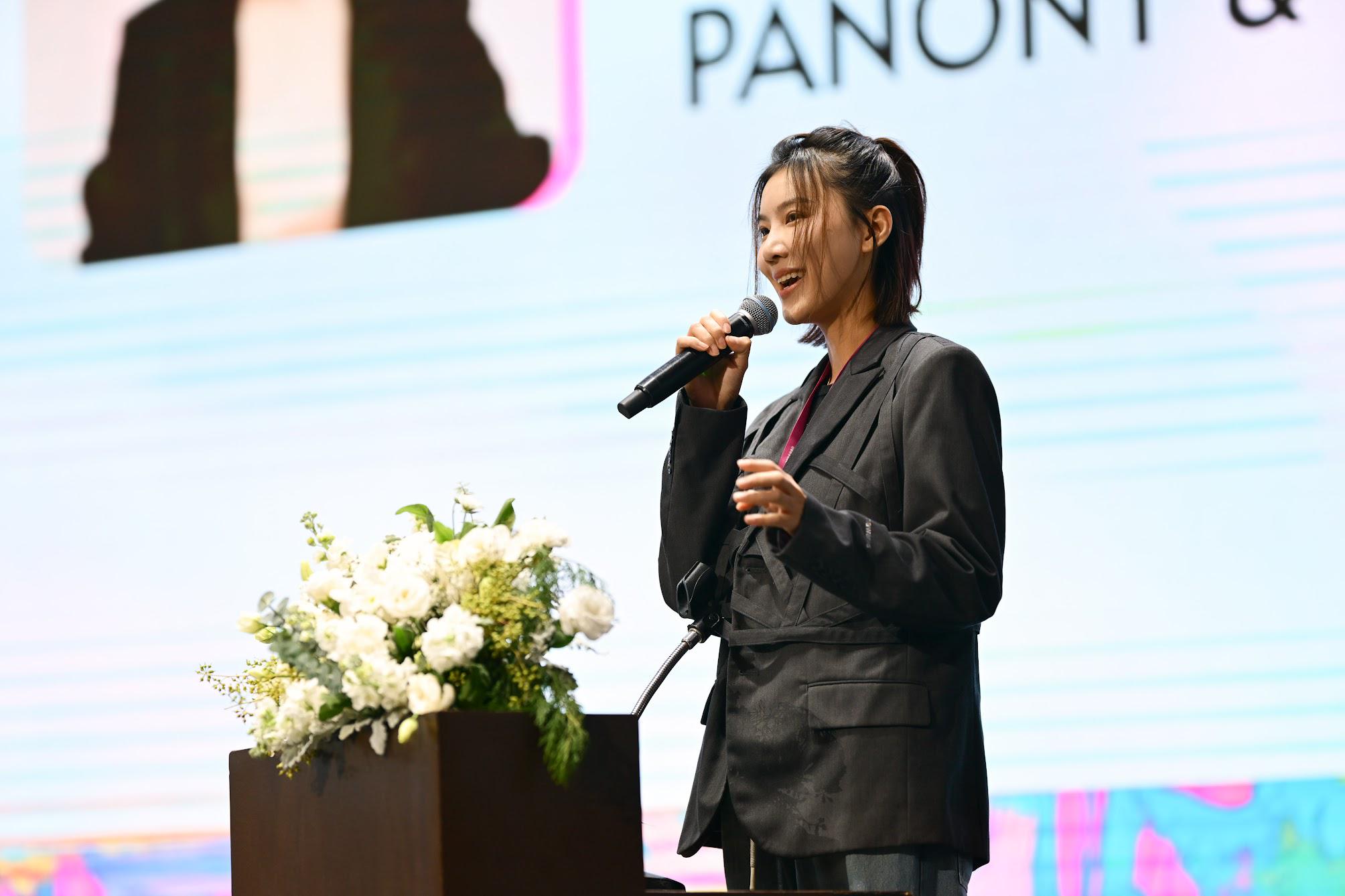
PANews released the latest NFT industry report at the event. The report deeply analyzes the current development status of the NFT market and explores potential paths for sustainable development of NFT, helping everyone to more comprehensively understand the complexity of the NFT market and gain insight into its possible future innovation paths.
Rose, head of the Mint Blockchain ecosystem, further pointed out that despite some pessimistic voices in the market about the prospects of NFT, the market has not disappeared and is evolving. Solana and L2 ecosystems (such as OP Mainnet, Base, and Mint Blockchain) are gradually becoming the main force in NFT activities, which shows that developers and NFT creators are turning their attention to other ecosystems. "
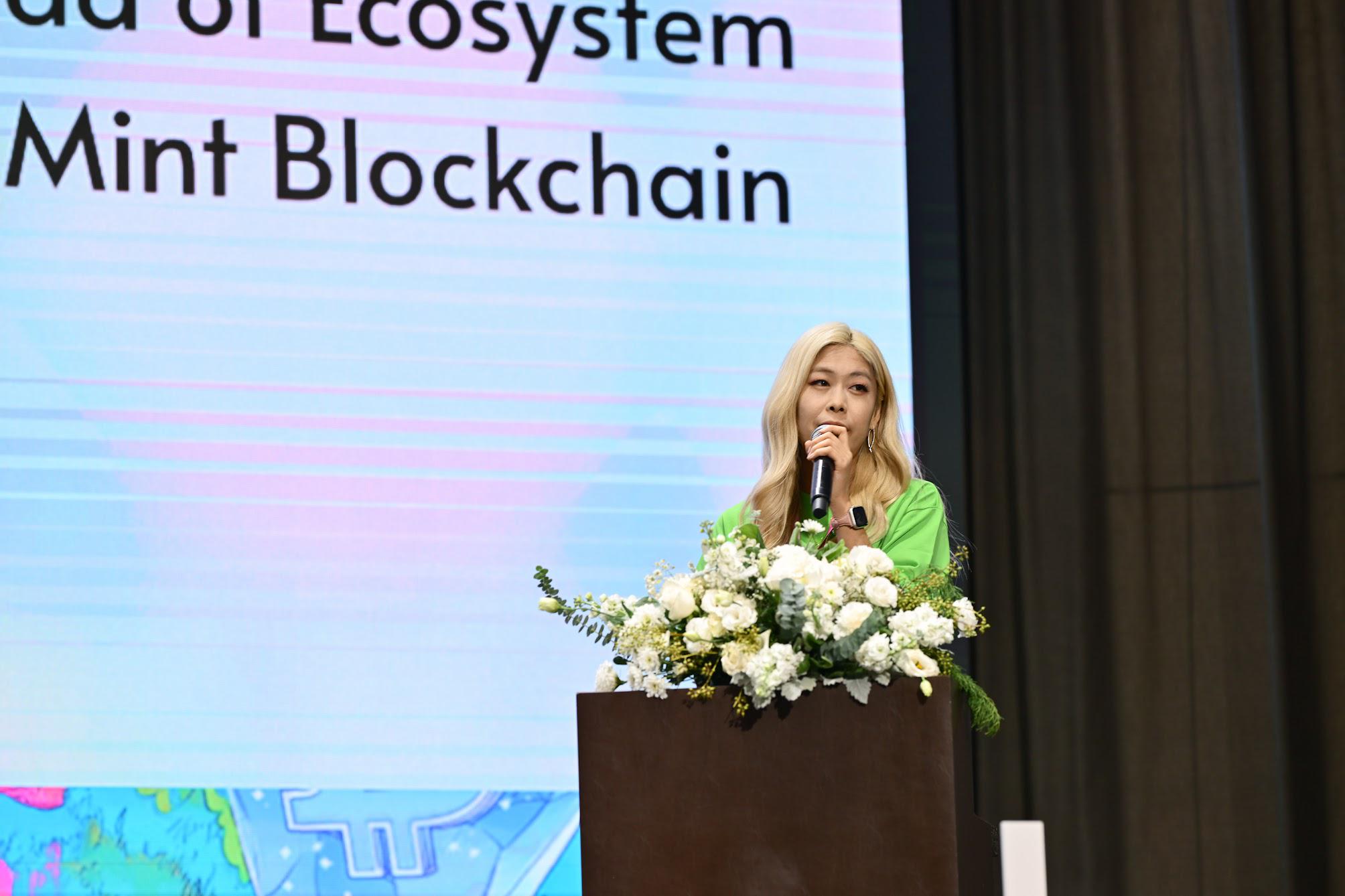
She also revealed that after the launch of Mint Blockchain, it has gradually joined the OP Superchain ecosystem. Currently, there are more than 5 million active users and more than 10 million transactions on the chain. The Mint Blockchain ecosystem mainly focuses on three aspects: NFT+ applications (games, DeFi, social networking, etc.), NFT passes, and simplified NFT creation.
In the keynote speech on "The Future of Decentralized Social Networking", Mask Network founder Suji Yan reviewed the history of cryptocurrency and cyberspace, pointing out that the emergence of Bitcoin represents a global financial freedom movement that does not rely on a single national government, and both Bitcoin and NFT are products of this decentralized revolution. "In the new digital world, NFT is not just a financial tool, but a tool to achieve independence, freedom, and revolution, helping us redefine the value and power of cyberspace. In the future, we may see new forms of states, new social protocols, and even new cultural movements based on NFTs.
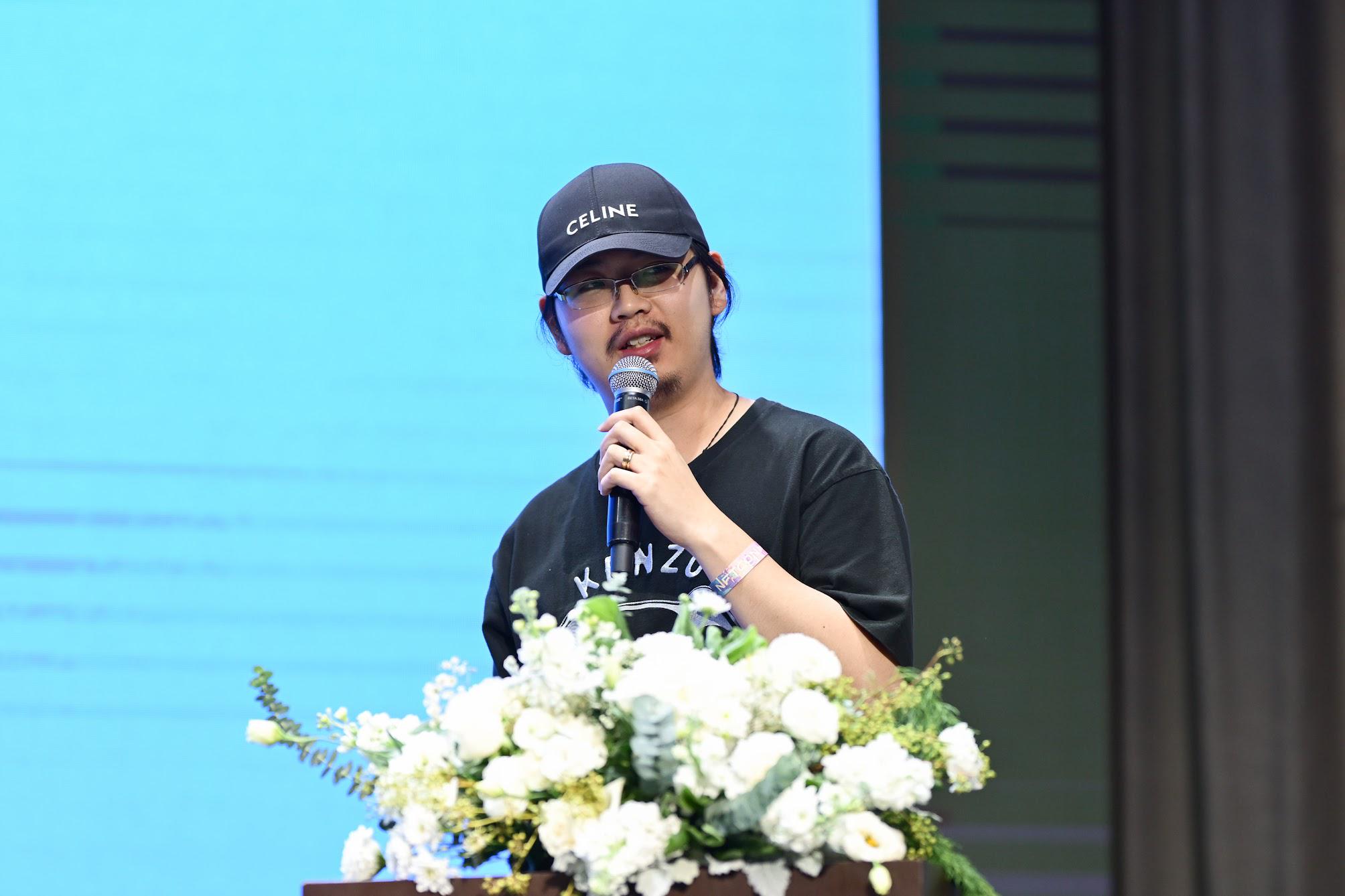
As the underlying technology continues to develop, NFT combined with cross-chain and L2 and other technological innovations are further enhancing its application in diverse scenarios, giving birth to new business models and economic ecosystems. In a roundtable on "How to expand NFT underlying technology to diverse use cases", Sarah, head of business development at BNB Chain, said bluntly, "We need to really think about how to apply NFT to our daily lives and find practical application scenarios, especially now that we see many consumer DApps working hard to guide Web 2 users to Web 3, whether it is IP-related, content, game projects, or even digital identity. In general, I think the future of NFT will find wider applications in real use cases."
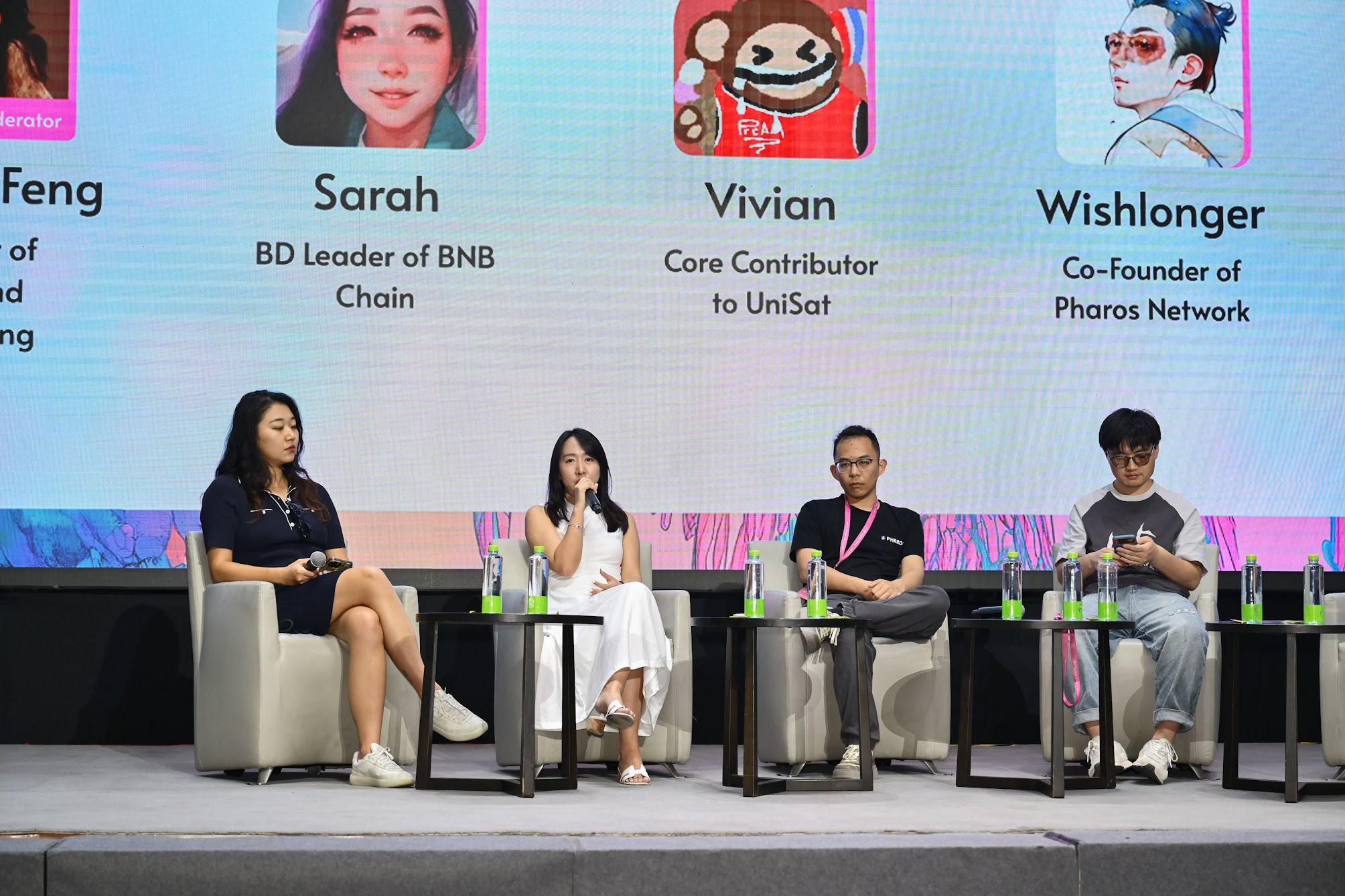
Wishlonger, co-founder of Pharos Network, also believes that although PFP NFT has been the mainstream in the market in the past, innovation is limited. Returning to the essence of NFT, it is a tool that can be used to create new value. He believes that NFT can serve as an entrance to Web3 and help new users enter this field.
RareShop COO Fries added that the real potential of NFT is not limited to PFP avatars, but also lies in how to combine NFT with real-world assets. For example, NFT can be applied to tickets, artworks, fashion, real estate, and even investment, which may become the next growth point of NFT applications.
"By combining the advantages of Web3 and Web2, we will be able to promote large-scale popularization and adoption." Cheryl Law, head of Pudgy Penguins Asia Pacific, shared Pudgy Penguins' rapid growth and brand expansion at the event. She disclosed that in the past, Pudgy Penguins has increased its brand value and market penetration through charity activities, community building and cooperation with well-known brands. For example, Pudgy Penguins and Walmart cooperated to launch toys, and all the products were sold out in 5 seconds. They also combined toys and blockchain through QR code technology to realize the digital experience of toys.
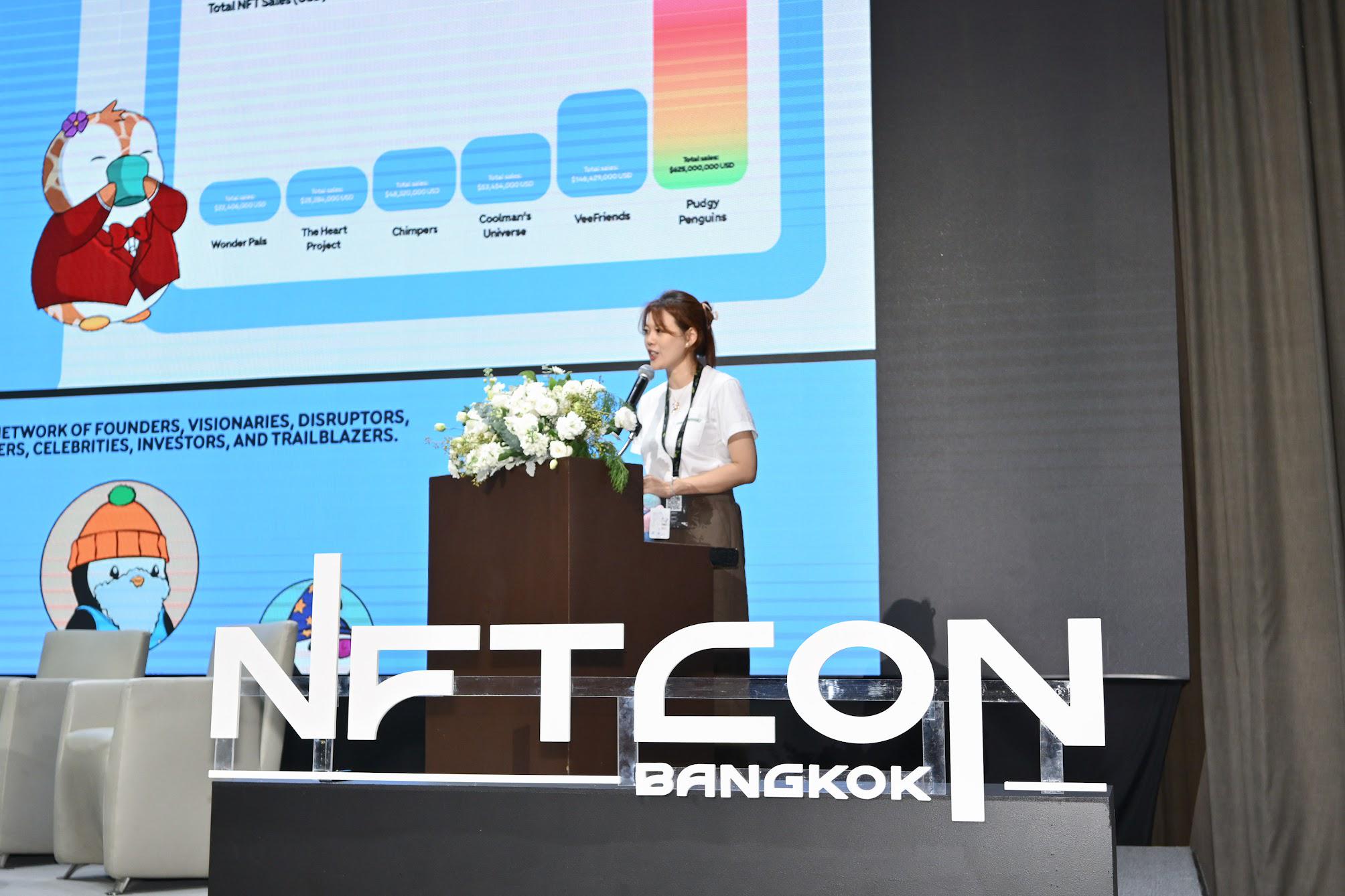
NFT breaks through: empowering both brand culture and business
When talking about the future of NFT, Victor Zhang, co-founder of Smart Token Labs, said at the roundtable that although the NFT market is still full of speculation, more and more projects are beginning to focus on the practicality of NFT, such as NFT membership cards, NFT tickets, and NFT physical products combined with e-commerce. In addition, FT is often limited to a specific blockchain or ecosystem, which limits its use scenarios and value. Jasmine Tran, project leader of Dagora, also believes that in the future, NFT will not only be collectibles, but there will be more innovative applications with practicality as the core, especially those combined with traditional brands.
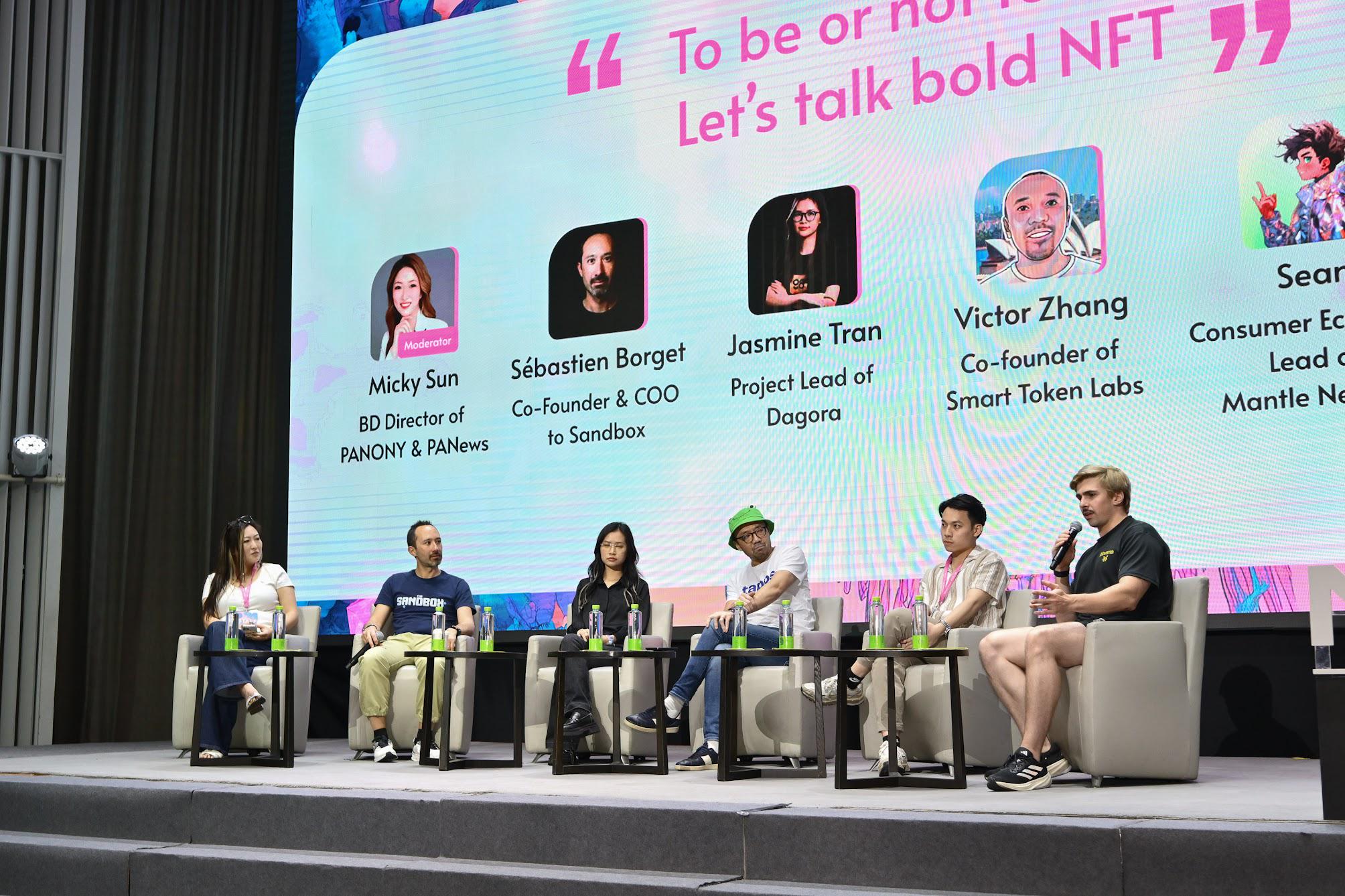
Sebastien Borget, co-founder and COO of The Sandbox, further cited the example that the application of NFT in the gaming industry is booming. For example, the integration of the Telegram network and multi-platform support allow games to reach a large number of users, promoting the widespread application of NFT in the gaming field. The potential of NFT in the tokenization of real assets is also gradually being explored.
Regarding the future challenges of NFT, Grant Gerbeg, head of the Movement Labs ecosystem, said that the expansion of the NFT community is facing dual challenges from external behavior and education. In particular, the behavior of individual members may have a negative impact on the image of the entire community, thereby damaging the overall value of the project. He also pointed out that NFT needs to make the public realize that it is not just a simple avatar or artwork, and its true value lies in the rich functions and infinite possibilities behind it. Therefore, education is the key to breaking through and promoting the development of NFT.
Grant Gerbeg, head of the Movement Labs ecosystem, also believes that NFT projects need to reduce market volatility and promote more sustainable development through education and enhanced user understanding.
In addition, in the roundtable meeting with the theme of "Leave or Enter: Views on the Future Economics of NFT", several crypto leaders conducted in-depth discussions on the future development trends of NFT, especially in terms of innovation paths. Among them, Yat Siu, co-founder and executive chairman of Animoca Brands, said that in the long run, NFT will become "cultural capital" in the crypto field. In a sense, NFT and MEME coins actually have many similarities, but they are from different eras. From the perspective of economic capital, social capital, symbolic capital and cultural capital, MEME coins and NFT operate in the same field, the former is more inclined to economic capital, and the latter is more cultural capital. He further pointed out that unlike other crypto projects, the economic model of NFT pays more attention to the value of the cultural level, and culture is the deepest "TVL" in any economy.
UniSat core contributor Vivian believes that the NFT market is currently in a consolidation phase. Although the market price fluctuates significantly, I personally think this is healthy for the entire ecosystem. This phase marks that people are no longer blindly chasing trends and can avoid flooding into the market at unreasonable prices. He is very optimistic about Bitcoin NFT and explained that Bitcoin is the most secure blockchain with the most untapped potential.
"I am personally very optimistic about NFT because it can be combined with Bitcoin and even with emerging technologies such as artificial intelligence (AI). "In the view of Yang, investment manager of Bing Ventures, there are two promising areas for NFT, one is the consumer side and the other is the infrastructure side. From the consumer side, NFT is a very good tool that can attract more users to join the community and increase user stickiness. From the infrastructure side, NFT can also be combined with real-world assets (RWA) to provide support for areas such as financial instruments. From an investment perspective, we are more concerned about the application scenarios of NFT, especially its actual value in the fields of finance, lending, real estate, etc. If an NFT application scenario has no practical use, its investment potential will be greatly reduced.
Jsquare partner Dinghan Luo and Antalpha Ventures head Fang Yuan also expressed their optimism about NFT. They believe that NFT is not just a cultural product, but it is also necessary to see the potential of NFT in practical applications, especially in areas such as financial instruments and real-world assets (RWA), which is also the key to making the entire NFT industry more complete. NFT can measure value from the perspective of network effects, but NFT is usually more symbolic, cultural, and even social. How NFT projects find the right market positioning and business model is crucial to the sustainable development of the project in the industry.
















